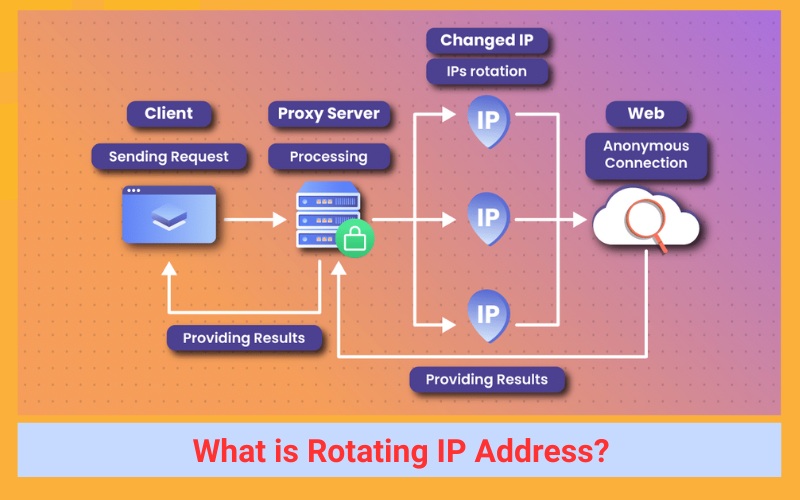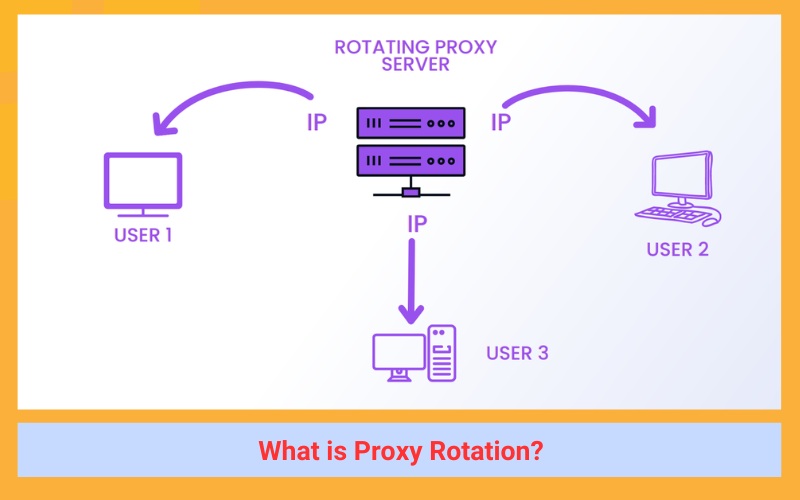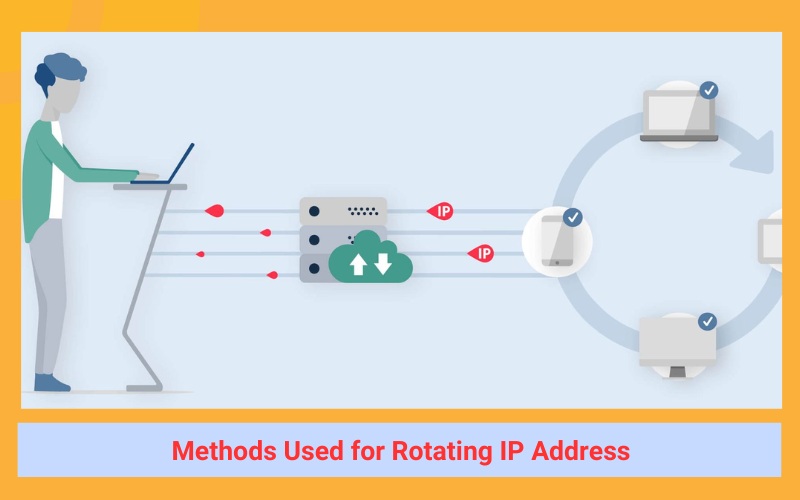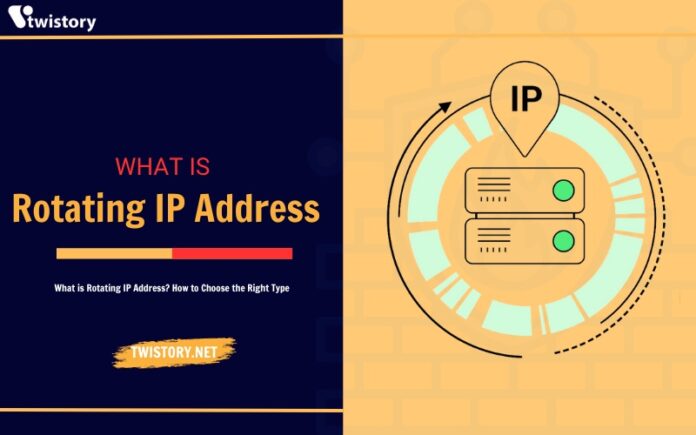You may have encountered the term “rotating IPs” Understanding and explaining what IP address rotation is and why it’s used can be complex. To fully comprehend its purpose, let’s delve into the concept of IP rotation.
What is Rotating IP Address?
A rotating IP address is like a secret agent’s mask for your internet connection. It’s a way to constantly change the unique identifier assigned to your device, making it appear as if you’re connecting from different locations all over the world. Imagine a globe with you standing on it, but instead of you, there are multiple copies of you scattered around, each with a different mask and a different voice – that’s kind of like what a rotating IP address does.

What is Proxy Rotation?
Proxy rotation involves an automatic switch of a user’s IP address by a proxy server after each connection or after a predetermined time. This process ensures that every connection appears to originate from a different device or location.
The primary objective of proxy rotation is to enhance anonymity, making it difficult for websites to detect or block the user. This is especially beneficial when numerous connection requests need to be made quickly, as most websites restrict the frequency of access from the same IP address. By continually changing your IP, it becomes more challenging for anyone to trace you.
Rotating proxies are utilized for various purposes such as web scraping, ad verification, market research, and multi-accounting. The three main categories of rotating proxies are residential, datacenter, and mobile.

Why Rotate Proxies?
Here are some reasons why proxies are rotated:
- Anonymity: Rotating proxies enhance user anonymity, making it difficult for websites to detect or block the user.
- Avoid IP Rate Limitation: Most websites limit the number of requests from the same IP address. By rotating proxies, users can avoid these limitations, known as ‘IP Rate Limitation’, and prevent blocking, throttling, or CAPTCHAs.
- Web Scraping: Rotating proxies are often used in web scraping, where large amounts of data are extracted from websites. By rotating proxies, scrapers can avoid detection and banning.
- Ad Verification: Advertisers use rotating proxies to verify their ads’ proper display in different geographical locations.
- Market Research: Market researchers use rotating proxies to access information from various geographical locations without restrictions.
- Multi-Accounting: Rotating proxies allow users to manage multiple accounts on the same platform without getting flagged.

Methods Used for Rotating IP Address
Internet Service Providers employ various methods to rotate IP addresses:
- Pre-configured IP Rotation: This technique involves pre-setting the rotation to occur at specific intervals. Once the specified time elapses, a new IP address is assigned to the user.
- Specific IP Rotation: In this method, the user has the option to select which IP address to use for an outgoing connection.
- Random IP Rotation: This approach assigns a randomly chosen address to each new outgoing connection. The user does not have control over which address is assigned.
- Burst IP Rotation: With this method, the ISP assigns new IP addresses after a certain number of connections. For instance, if the specified number is 10, a new IP address will be assigned to the eleventh connection after every ten connections are initiated.

How to Rotate IP Addresses?
The term “IP address rotation” can refer to two distinct concepts:
Altering your own IP address
- Restart your router/modem: Occasionally, this can prompt your ISP to assign you a new IP address. However, this is not always guaranteed and depends on your ISP’s policies.
- Utilize a VPN: VPNs connect you to the internet via a remote server, effectively concealing your own IP address with the server’s. Many VPNs provide automated IP rotation features, altering your IP address at regular intervals.
- Employ a mobile hotspot: If you possess a mobile phone with a data plan, you can establish a mobile hotspot and connect your devices to it. This will assign you the phone’s IP address, which might differ from your regular one.

Utilizing a rotating pool of IP addresses
- Proxy rotating services: These services offer a pool of proxy servers with varying IP addresses. You connect to the service, and it directs your traffic through one of the proxy servers, assigning you the proxy’s IP address. These services often provide automatic IP rotation, cycling through their pool to prevent your activity from being associated with a single IP.
- Residential proxy networks: These networks are comprised of actual devices like smartphones or home computers that share their internet connection with users. By connecting to a residential proxy network, you receive a dynamic IP address from a real device, making it more difficult to trace your activity.
Conclusion
In conclusion, a rotating IP address is a useful tool that allows users to access the Internet securely and privately. It enables users to hide their identity, bypass geographical restrictions, and prevent online tracking. However, it’s important to note that the use of must comply with legal regulations and should not be used for malicious purposes. For more interesting and useful information, follow Twistory. We constantly update the latest and most useful knowledge for you.


